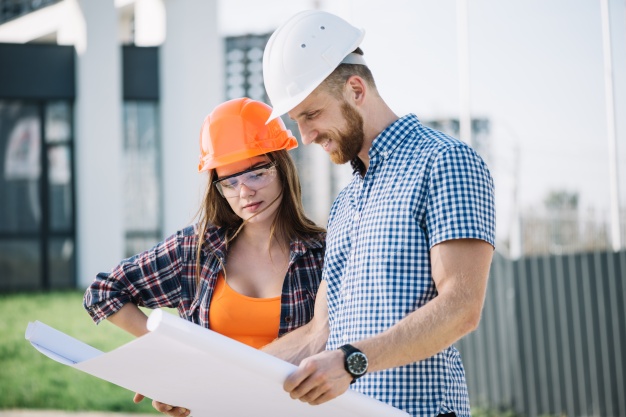To make sure your building has safety and amenity, health, and structural integrity, it must, by law, be inspected and certified by a qualified person at critical stages. The inspection is to confirm that it's been constructed in accordance with the approved specifications, plans, council regulations and Australian Standards, and the Building Code of Australia(1). According to the Australian Government website, there have been instances in several jurisdictions of inadequate compliance with regard to certification of sustainability, which indicates this important issue is sometimes overlooked. Many private companies offer specialised environmental certification. Contact the Australian Institute of Building Surveyors(2) for advice.
A Building Inspections are Vital
A home inspection at crucial stages by a qualified person is your best defense against your new home building project turning into a nightmare. Sadly, the construction process these days can leave many gaps that could end up with some major problems being overlooked, depending on the reputation of the building company.. There many different companies providing trade services for most builders, including site work, carpenters, roofers, masons, plumbers, electricians, gyprock installers and painters. These tradies are normally on the building site for a few days only before going on to the next job, so their focus is on getting one job done, then moving to the next, and this can be at the expense of quality work.
Do yourself a big favour and use these tips to get the most out of your home inspection:

Be on site during the Inspection
It's vital that you're there for the building inspection and do ask lots of questions. You can show the inspector any problems you'd like checked out. Your awareness of prospective problems is invaluable.
Use an Inspector You Trust
Doing your research to find your own building inspector will bring you more peace of mind. Sure, the builder can suggest someone, or your real estate agent or bank, but you should find your own third-party, impartial inspector won't be loyal to anyone else but you and will be able to talk frankly and freely about any problems with the build. A quality inspector might cost a bit more, but will be worth it in the end whether you're building or buying a home. Of course, if you are buying a home, you will need a building inspection plus a pest inspection, although the latter is not required by law, but it is definitely necessary for your peace of mind because termites infestations and other pests can damage the structure of a building.

Don't be Backward in Asking Questions
While respecting your building inspector's experience, time, and  knowledge, don't hesitate to speak up if something doesn't look right or if you don't understand what they're talking about. It's better to ask a question you might think is silly or irrelevant, than finding that once you've moved in, there's an issue.
Take Photographs for Proof
Building inspector's worth their salt will bring a camera to the site and will crawl up into the roof and underneath decks and for instance. If the inspector isn't taking pictures, ask why. The inspector can use thermal and Infrared cameras to see behind walls and floors that wouldn't otherwise be seen unless walls or floors were ripped out. Some home inspectors charge extra for this.

Do a Pre-Inspection
You'd be surprised by how much you can learn about a house by simply looking at it. Do an inspection yourself, before you get a building inspector in and write down and issues you find, however minor. Check the ceilings and walls for stains and discoloration, which is evidence of water damage. Switch on all the lights and power outlets to ensure the electrical layout is right and look for new wire that isn't connected, for instance. Check for drainage problems on the exterior, any paint peeling around decks and porches so when your inspector arrives you'll have an idea of what you want to ask about. If you have built-in wardrobes, check the hinges, shelving  and interiors.
Check the Plumbing
Water pressure is vital to a functioning home so losing it or having to deal with a drain that's slow can indicate bigger plumbing problems. Make sure your building inspector tests bathtubs and shower recesses for leaks. Also have the shutoff points and water mains tested before your keys are handed over. Also don't forget to check the taps in the kitchen, bathroom, laundry etc.
Once your build has passed inspections and been certified, why not have a professional residential cleaner go through and have the place spic and span so you can go ahead with your home decoration before you move in?

If you're thinking about a home build, Homeshelf can make the search for a new home builder and home design that much easier. Whether you're wanting to build in a new estate, or a designer home or even a knockdown rebuild, we have an extensive builder network all over Australia. Using our unbiased knowledge of the building industry and 10 years of experience, we'll recommend three builders in your area with house designs to suit your block, your budget, and you home requirements so you can compare all quotes. Phone 1800 932 013
____________________________________________________________________________
References:
-
http://www.yourhome.gov.au/you-begin/construction-process
-
https://aibs.com.au/
Â